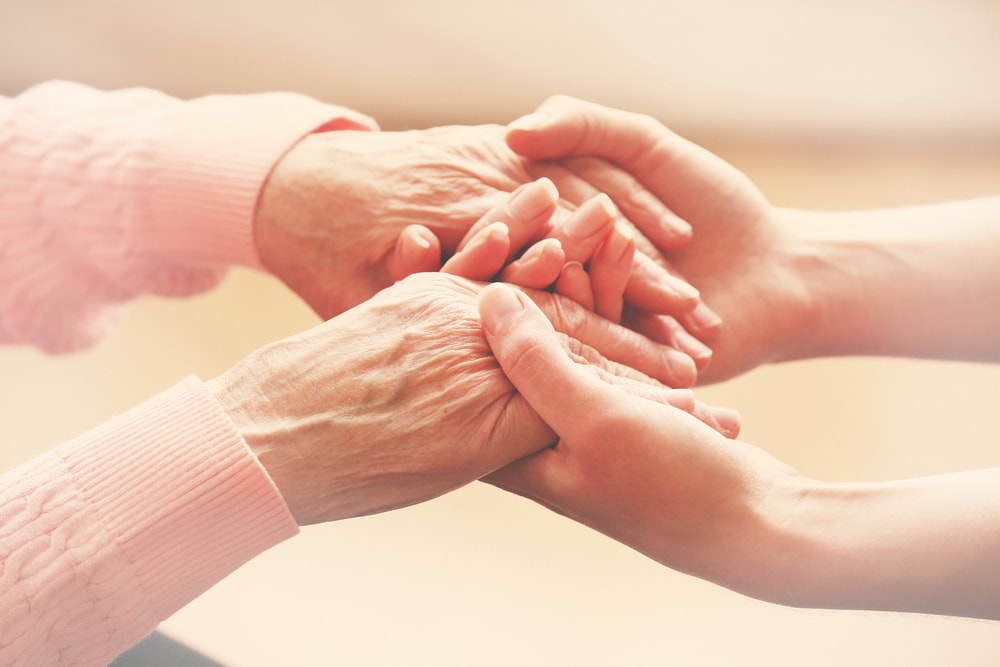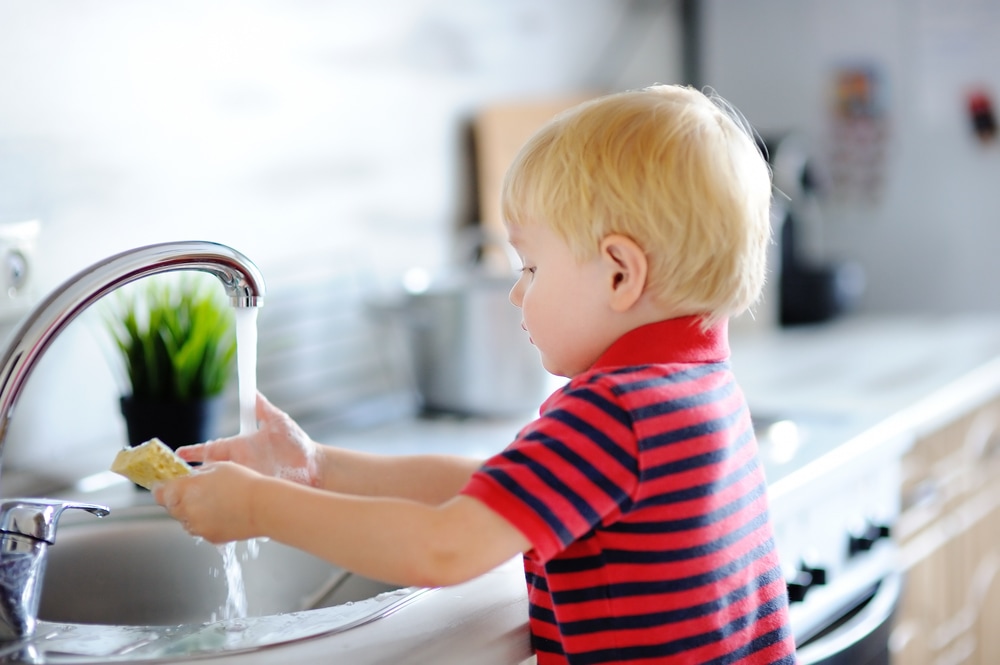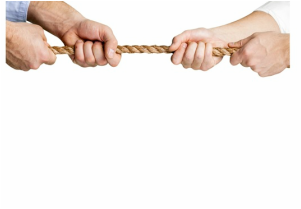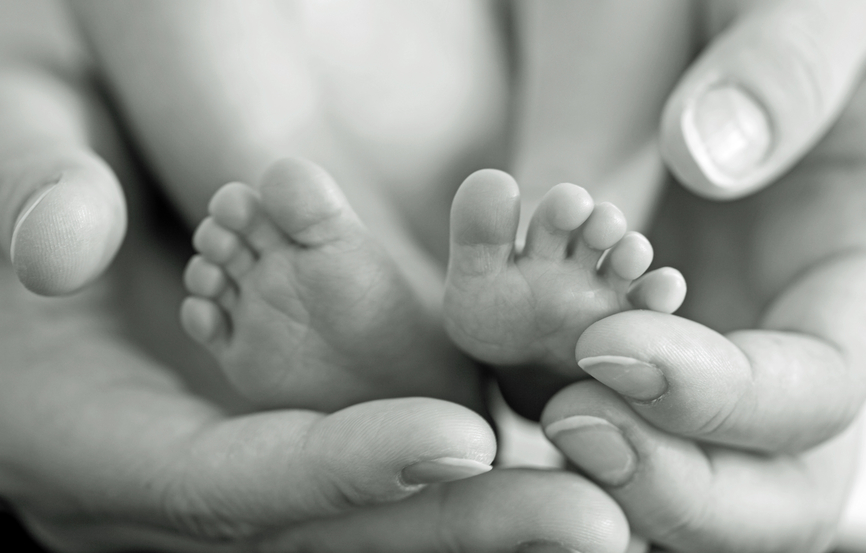|
The death of a parent is one of the most painful losses we will encounter. When the life of that parent is marred by addiction, his or her death can complicate the relationships between surviving family members.
This month's letter addresses a family, first torn apart by addiction, and then gutted when their newly-sober mother succumbed to cancer. If you have any thoughts you'd like to share with our letter writer or with this community, please feel free to leave them in the comments section below. Dear Dr. Jill, I am a 43-year-old woman whose mother died of cancer about six months ago. She was my only living parent. Even though I have a younger sibling (age 40), lately, I feel more like an only child. Growing up, my mother was a single parent. She was also a hard-core alcoholic. Most of my childhood memories are of her, either passed out or acting strangely, and me, feeling terrified of what would happen next, desperate to shield my sister from my mother’s behavior. About five years ago, Mom got sober. Two years into her sobriety, she made amends with me. We were just starting to rebuild our relationship when she was diagnosed with lung cancer. She died roughly two years later. I was devastated. Though losing my mom has been difficult, I’m actually writing because I’m not sure what to do about my sister. My sister moved to the East Coast after high school graduation to get away from mom’s drinking. She never looked back. My sister is still really angry at my mom for the years of drinking and even judges me for being so “quick” to forgive her. Mom tried to work things out with my sister but my sister was never really open to this. Since Mom died, I have tried reaching out to my sister but each conversation seems to regress back into my sister’s anger toward my mom. Anger I no longer feel since Mom and I repaired our relationship. At times, my sister’s rage is more than I can handle. I find myself making excuses just to get off the phone—or avoiding her calls altogether. This is not what I want for our relationship. I love my sister. I want so much for us to be close like when we were younger. If things don’t change, I’m afraid the distance between us will keep growing. Have you encountered similar situations? If so, what advice can you give about how to deal with them? Signed, My Sister’s (Anger) Keeper Dear Keeper, First off, my condolences for your loss. How very sad it is that your mother’s life ended, just as it was beginning anew. The death of a parent, for siblings, tends to be scissors or glue: it either draws them closer together or widens the chasm between them. My Spidey senses tell me you and your sister want the death of your mom to be glue but your sister can't stop herself from charging at you with scissors! You are grieving the most recent version of your mother while your sister is grieving the mother she fled after high school (i.e., a very different mother). Even though you technically lost the same person, your grief looks and feels different right now for this reason. What’s more, I would venture to guess your sister feels conflicted about her choice to decline your mother’s attempt at making amends. This choice was likely made under the auspices that your mother had more time than she did. It is also a choice your sister cannot go back and change now that your mother is gone. If given the option to feel sad and vulnerable or angry and powerful, many of us will choose the latter until we are strong enough to be with the former. It is hard to be caught in anger’s slipstream when you are feeling hurt. Thus, I recommend limiting conversations with your sister to the times you feel fortified enough to hold her pain. When you do speak with her, set limits if she becomes disrespectful. If she is unable to heed those limits, politely end the conversation and try again later when she's more calm. Though you care deeply for your sister, you are not responsible for her choices or the feelings she has about them. And appropriate self-care is nothing to feel guilty about. That said, anger needs only to be acknowledged (sometimes over and over again) for it to recede and, when it does, what usually rushes forward is sadness. I suspect your sister will be easier to connect with once the hard edge of anger is softened by her sadness. In the meantime, because you deserve to be supported in your grief, I recommend connecting with close friends, other family members, a support group for adult children who have lost parents, etc. Grief longs to be witnessed. Ideally your sister would be that witness but, right now, she’s too steeped in her own grief to hold yours. It's unfortunate. And, it's not personal. Finally, remember that grief is fluid. It moves around a lot. Just as you will not always feel this sad, your sister will not always feel this angry. Keep showing up with your boundaries intact and, when she is ready to put down the scissors, the relationship is likely to feel a lot more like glue--for both of you! Your In Health, Dr. Jill Dr. Jill Gross is a licensed psychologist, counselor and dating coach in the Phinney -Greenwood area of North Seattle. If you and your siblings are struggling with the death of a parent, help is just a click away. Schedule a free consultation to see how grief therapy can help restore peace in your family!
0 Comments
Valentine's Day. Some dread it. Some love it. Some view it as just another day. For those who've recently lost a partner or spouse, Valentine's Day can be especially rough. Today's post is about grief. May it reach the hearts of those who are grieving, today and every day. As a grief therapist and counselor, friends and family sometimes ask, “Does it burn you out to sit, all day, listening to sad stories, told by sad people?” Clients make similar inquiries. They wonder if their grief, like a virus, is contagious. Actually, sitting with grieving people has the opposite effect. Just like an expectant mother’s contractions, grief is pain with purpose. Though people are sad, angry or scared when they are grieving, typically, they are also learning something significant--about themselves, their relationships, their families, their friends. What’s more, grief brings with it an indescribable openness that, if handled appropriately, fosters deeper connections, both inside and outside the therapy room. What could be more energizing than that? Grief is a normal, natural side effect of love and loss. So why are so many of us quick to judge or criticize ourselves when we are grieving? In an age where we are one click, tap, or swipe away from just about anything, it’s easy to assume we are in pain because are doing too much of one thing, not enough of another, and/or because we haven't downloaded the right app yet. This assumption is untrue. In fact, leaning into grief helps us accept it as a naturally occurring process that needn’t be controlled. One of the most frequent questions encountered in my therapy practice after a loved one dies is, “How long will this last?” or “When will I feel normal again?” To this, I usually answer, “That depends. How long will your loved one be dead?” Sure, this answer makes me guilty of the age-old therapist / counselor stereotype of answering a question with a question. But it also validates what clients already know: because their love is life-long, so too will be their grief. When clients hear this, the relief in the room is palpable. Dr. Elizabeth Kubler-Ross once thought of grief as a circumscribed process consisting of five stages: denial, anger, bargaining, depression and, finally, acceptance. Experts now believe that grief is a fluid, non-linear process. The “stages” of grief are more like “areas”--rooms that we wander in and out of, depending on our circumstances (e.g., anniversaries, birthdays, holidays, etc.). In fact, we can feel all of the areas of grief, sometimes in the same day, at the same time, and in no particular order. Though there is no magic pill to eradicate or hasten grief, here are six things that can help facilitate healing after loss:
Moving forward with life after death sounds simple. But it is far from easy. If you are feeling stuck or frustrated by grief, it may be wise to seek assistance from a qualified grief therapist or counselor. Feel free to get in touch for a free consultation to see if therapy or counseling is right for you. You can also find valuable grief-related resources, including counselors and groups in your area, here. Remember, grief is how the body, mind and spirit heal after loss. It changes us. It soften our edges. It opens our hearts. Surrender to grief and let it's powerful current carry you wherever you are meant to go. Dr. Jill Gross is a licensed psychologist, therapist, and counselor. She offers grief therapy, divorce support, and other counseling services in the Phinney Greenwood area of Seattle, WA. If you've recently lost a loved one and want to feel better, schedule a free consultation to find out how grief counseling can help you! Young people fantasize about their futures: graduations, careers, love, partnership, children, grandchildren, retirement, and the ability to live independently until they die peacefully in their sleep. I am willing to bet none will envision being part of the roughly thirty percent of elderly individuals who require assistance with daily living.
Average life expectancies, living expenses, and healthcare costs are increasing. So too are the number of adults between the ages of 40 and 60 caring for their elderly relatives while parenting their own children. They’ve even been given a name: The Sandwich Generation. Recently, I was asked by Jamie Tompkins of Q13 Fox News to talk about the growing number of individuals who are straddling the roles of parent and caregiver. You can see the interview here. Whilst preparing to speak with Jamie, my thoughts drifted to Dorothy, my beloved grandmother. From the time I was a little girl, Dorothy would talk to my mother, sister, and I—anyone in the family who would listen really—about her values and goals around aging and death. I recall driving by elder care facilities and hearing Grandma sigh and say, mostly to herself but audibly enough for others to hear, “I hope I never have to live there. That place is for old people.” Anyone who knew Dorothy knew independence was her top priority. She never wanted to be a burden to her children or grandchildren. Dorothy’s husband, my grandfather, Donald, was a exquisite stained glass artist. There was always a new lamp shade, wall hanging, or sun catcher in their home and, what he didn’t display in his home, he gave to the people he loved. Anytime my mother, sister, or I would fawn over one of his latest creations, Grandma would always say, “Put your name on it!” At the time, this felt something akin to the cops showing up just as the party was getting started. My thoughts would immediately shift from the beautiful objet d'art to the day we all knew was coming but nobody wanted to think or talk about. Not cool, Grandma, not cool! These were always moments of conflict for me. I wanted Grandma Dorothy to live forever; she wanted the opposite. And she wasn’t shy letting us know about it. Usually when we least expected it. Though these comments seemed slightly harsh at the time, in hindsight, they were actually gifts. Grandma seized a topic my family would have otherwise shoved to the farthest, darkest reaches of the storage closet and thunked it right down in the middle of the kitchen table. She forced us to deal with death and, in doing so, made the idea a little less scary. At age 84, when Grandma Dorothy was placed on life support due to complications from an automobile accident, our family’s choice was painful but clear. And we had Grandma’s morbid sense of humor to thank for it. Grandma Dorothy, along with the numerous sessions I’ve had with the brave and hardworking members of The Sandwich Generation, were the inspiration for much of the advice I had for Jamie. Since the magic of editing transformed an hour-long conversation into a five-second news clip, I’ll give you the highlights of what didn’t make it into the reel:
Talking about later-life care can be painful and awkward for your children. But it’s better for your children to have a few awkward moments than a potential lifetime of regret or confusion about whether or not their mother or father got the quality, end-of-life care they deserved. Thanks to Q13 Fox News for being the voice of The Sandwich Generation and to the brave soldiers who are striving to balance caring for themselves, their children, and their elderly relatives. I wish you all quality time with your loved ones this Thanksgiving! Dr. Jill Gross is a licensed psychologist, therapist, and counselor. She offers grief therapy, divorce support, and other counseling services in the Phinney Greenwood area of Seattle, WA. Need help navigating a transition?
Howdy folks! In my years of being both a participant and leader of therapy groups, public speaking engagements, etc. I’ve learned that, if one person has a question, chances are, others in the group have the same (or similar) question. If that question never gets asked, then no one gets the benefit of learning from it! It is for this reason I’ve decided to experiment with something a little different.
Over the past few months, I’ve gotten so many great questions via “Ask The Shrink,” that I’ve decided to publish them here on the blog. The question below is one I recently received from a reader and, given the frequency with which the topic comes up in my therapy and counseling practice, I couldn’t wait to share it with the rest of you! So, if you’ve got a question, click here to ask it and you may just see your question answered in a future blog post! Of course, all identifying information will be omitted to protect your anonymity. Hi Dr. Gross, I have a problem with my boyfriend's mother. My boyfriend and I have been dating about two years. We are both in our late 20's. My boyfriend's mother has a history of not liking her other children's "significant others." However, it really bothers me that his mother is so standoffish and judgmental towards me. Her tone and eyes are cold and she rarely offers positive affirmations of my life happenings. It makes me feel insecure and sad. My boyfriend is sad about it too. He talks to his dad who is also uncomfortable with his wife's behavior. I want to have a happy relationship with her. It is especially scary to imagine marrying my boyfriend and having her for a mother-in-law. Not sure what to do... I look forward to hopefully reading guidance you may have. Best Wishes, "Maybe-in-Law" Dear Maybe, First of all, thank you for broaching this topic! Learning how to relate to a partner’s family can be quite complex, particularly when members of that family seem reluctant to engage. When I read your letter, the first thought I had was that your boyfriend’s mother feels exactly the way her actions make you feel: sad and insecure (scared). Parenthood is a complicated stew of emotions: we want our children close yet we must also accept that they do eventually grow up. I think your partner's mother is grappling with this very issue and, rather than acknowledging the fear and sadness it often evokes, she is taking it out on the poor, unsuspecting partners of her now-adult children. In this case, that unsuspecting partner is you. You feel sad and insecure for a good reason: no one wants to be pushed away by a member of their beloved's family! If there is anything to be said or done about this, your boyfriend is the best candidate for the job. Assuming he hasn’t already done so, I would encourage him to talk with his mother and say something like, “Mom, I love you and my girlfriend so much. Nothing would make me happier than for all of us to be close and have fun together. How do you think this can happen?” This question states your boyfriend’s wishes clearly while enlisting his mother to be part of the solution. Win-win! If your boyfriend’s mother denies her behavior or gets defensive, he gets to decide the best way to set appropriate boundaries with his mother while protecting his allegiance to you. Then, the two of you get to decide on your own how much time you choose to spend with someone whose actions leave you feeling sad, insecure, or both. The fact that her son is ready to start a life and family of his own is a testament to what a good job his mother has done...she just doesn't know this yet. Keep in mind that time and consistent kindness can thaw even the iciest conditions. Though things may be a bit frosty right now, if your boyfriend’s mother continues to witness how happy you make her son, she may eventually conclude that the best way to honor him is to accept the person he is choosing to spend his life with. Thank you again for entrusting this community with your question. Best wishes to you as you navigate this challenging situation! Yours in health, Dr. Jill Speaking of community, have any of you successfully worked through in-law issues? We would all benefit from knowing how you did it! Please share your story in the comments section below. Also, feel free to share this post with anyone who may be asking their own version of this question! Dr. Jill Gross is a licensed psychologist, therapist, and counselor. She offers grief therapy, divorce support, and other counseling services in the Phinney Greenwood area of Seattle, WA. If you've got questions about your own relationship, schedule a free consultation to find out how therapy or counseling can help you!
I often feel unsure about what is harder: parenting or comparing myself to other parents who seem to have it more "figured out" than I do.
This video clip from Julie Lythcott-Haims, author of the acclaimed book, "How To Raise An Adult," served as a nice reminder that it is okay--no, it's necessary--to remove our hands from the yoke on occasion and let our children figure out how to fly, even when that mechanical beast is pointed straight toward the earth! Just Wednesday morning, my daughter, God love her, chose to oversleep, giving herself barely enough time to apply the copious amounts of expensive makeup she insists on buying (with her own money, I feel compelled to add), let alone eat breakfast and make lunch. While wolfing down a bowl of cereal she asked me if I would put a bagel in the toaster so she could eat it for lunch. Was I doing anything of significance? No (well kind of. I was writing this article). Did I toast the bagel for her? Hell no! Though the request seemed innocuous enough, toasting that bagel would have reinforced her failure to plan accordingly. Was she be hungry that afternoon? Certainly. Did she die of malnutrition? Certainly not. Did she rise fifteen minutes earlier the next morning? In fact, she did. Our job is to equip our children to cope with life which--newsflash--is FILLED with frustration, disappointment, and failure. How can they learn to handle the bumps and scrapes if we never let them fall? Though most parents say they over-function because they are afraid of how their children will feel if they don't, it is more accurate to say parents are afraid of how they will feel if they step aside and let their children construct and deconstruct their own messes. In other words, we parents are just plain uncomfortable with feeling uncomfortable. Discomfort is the enemy of neither parent nor child. It is the precursor to self-advocacy, learning a new skill, making a new friend, or solving a problem, all of which are required for proper grownup-ing. When our children lose or fail, they will feel badly for a while. This is a normal, healthy response to disappointment. Eventually, they will feel better and, each time they do, they grow a little more confident in their ability to overcome challenge. More and more in my therapy and counseling practice, I see young people who are riddled with fear and self-doubt, struggling with even the most basic of decisions. This is no longer the exception. It is becoming the norm. Research out of institutions like Keene State College and The University of Tennessee at Chattanooga are suggesting a strong correlation between helicopter parenting and poor social adjustment, higher levels of anxiety, and depression. Not quite what we had in mind when we were busy forming a human shield between the the edge of the sofa and the coffee table. Some of the most valuable lessons we learn come from what, at the time, would have easily been considered failures, mistakes--disasters even. Why deprive our children of such critical learning? So we won't judge ourselves for being neglectful? So others won't think we are bad parents? According to Lythcott-Haims, if we want to foster our children's self-esteem and self-efficacy, here are some good places to start: 1. Give them chores. Children who do chores are happier and more confident than children who don't. If children live in a house, they should be responsible for some of its maintenance. This is not punishment; it is modeling of appropriate social responsibility. Do you want your child to be the roommate no one wants to live with because he leaves dishes in the sink and clothes on the bathroom floor? Me neither! By age three, children are old enough to clean up their toys, load the dishwasher (yes, you read that correctly. Don't panic. You can rearrange them later when your child isn't looking), put dirty clothes in a hamper, etc. Increase the level of responsibility with age. My children (now 13 & 15) have been doing their own laundry for several years and it has been GLORIOUS! Sure, their socks and whites look like they escaped from the set of "Joseph's Technicolor Dreamcoat," but who cares? They don't. Neither should I. 2. Back off school. Stop asking about homework, stop doing it for them (sidebar: this should never have been started to begin with), and don't ask about school performance or grades. You already passed the K-12 grades; it's their turn now. If they are struggling, ask them what they think needs to happen to get back on track. If your kid needs extra help, hire a tutor. The headcount of parents who say tutoring their own child was more helpful than frustrating? Just about zero. 3. Stop calling their teachers and coaches. Instead, teach your kiddo how to respectfully communicate with authority figures. They need to know this stuff! 4. Teach basic life skills. I have a friend who is requiring that her teenagers know how to procure and prepare at least ten recipes before graduating high school. If you want your kids eating more than just ramen noodles and mac-n-cheese once they get to college, start taking them to the grocery store with you. Let them go through the check stand by themselves. Teach them how to cook. Show them how to use public transportation, apply for a job, open a bank account, balance a checkbook, fill out a tax form, etc. Think of everything they will be responsible for once they move out and show them how to do it on their own. Lythcott-Haims outlines a four-step method for doing this: First do it for them, then with them. watch them do it, and then let them do it themselves. In lieu of asking ourselves what more we can do to help our children succeed, perhaps it's time to ask what less we can do instead. It can be scary to give up control. So many of us believe our children's choices are a reflection of our parenting. This is sort of true--they do absorb the values we model. But mostly it's not. Our job is to plant the seeds and show our children how to garden. The rest is entirely up to them. Let's learn from each other! Got a self-efficacy success story? A question or concern? Feel free to share it in the comments section below. Dr. Jill Gross is a licensed psychologist, therapist, and counselor. She offers grief therapy, divorce support, and other counseling services in the Phinney Greenwood area of Seattle, WA. Parenting struggles got you down? Schedule a free consultation to find out how parenting support and counseling and help you!
"You may write me down in history
With your bitter, twisted lies, You may trod me in the very dirt But still, like dust, I’ll rise." -Maya Angelou
Welp, we have a winner. And, technically, it isn't the majority's choice. The Seattle air was palpably heavy yesterday. Coffee shops and walking paths seemed a little emptier, faces looked little more somber, people were protesting downtown. I could practically hear the clicking of "Unfriend" buttons everywhere. I've lived through many elections, but this one has been, by far, the most divisive.
The turbulent emotional waters have left most of us searching for dry land. So, without further adieu, here some things to remember as you make your way shoreward: 1. Some of us are grieving. Roughly 48 percent of us are working through grief's five stages: shock ("Oh my god!"), denial ("This can't be happening. There must be some mistake!"), anger ("WTF?"), bargaining ("If only those swing state voters hadn't chosen a third party."), depression ("What do I tell my children? What is happening to my country?"), and, finally, acceptance ("Okay. Now what?"). It is perfectly normal and natural to grieve when outcomes are neither chosen nor desired. Name your feelings and speak them out loud, first to yourself. Give your grief the space and compassion it deserves. If you are not grieving, respect folks who are. 2. Some of us are celebrating. Those who voted for Trump did so either because they believed him to be the best person for the job or because they perceived him to be the less malignant of the two candidates. Either way, they are happy he won. Part of the privilege of living in a democracy is that each of us is free to think and vote as we choose. This means some of us get what we want and some do not. Be gracious to those who are pleased with the outcome. 3. Know when to say "when." When we are afraid, sad, or angry the constant drum beat of 24-hour news coverage can escalate those feelings. If your political rhetoric cup is overflowing, walk away for a while. Turn off the television, put down the phone, disable your social media accounts--do whatever it takes to create a quiet space for yourself. Also, it's okay to tell your friends that you need to limit post-election discussion. They'll understand and, quite possibly, feel relieved. 4. Live your values. We don't have to drink the party Kool-aid if we don't like the flavor. Voting is only one of many ways to make your voice heard. Now is the time to lean into what you stand for. Feel passionate about social justice? Be a voice for the oppressed! Donate time or money to causes that support your vision for the future. If that feels like too much, set a conscious intention to be kind to other humans: smile at babies, look people in the eye, hold the door open for old people. Do whatever you can to pump more love into the world; there is always room for it! 5. Teach your children. Now is a great time make explicit your family's values and to explore with your children the complexities of living in a country where people have the right to think, feel, and act independently. Encourage your children to vocalize their thoughts and feelings; listen supportively. Kids do not have the maturity or life experience to accurately forecast outcomes. They take their safety cues from adults. Thus, it is important to model composure. Tell your children that they are loved. Tell them they are safe. Tell them your family will continue to uphold its own values; empower them by including them in the ways you choose to do this. A little smoke and mirrors is sometimes necessary when you are a parent. Even if you don't quite believe it yet, tell your young people it is going to be okay. They need to hear this. 6. Remember the divine. Crises and conflict are sometimes needed to break apart a system that is yearning to be reassembled differently. Perhaps the election is teaching us something we need to learn but have yet to know. In times of uncertainty, it is normal to feel afraid. Fear can easily convince us the worst is likely to happen. Try to acknowledge fear without letting it run away with itself. Remember, this moment was divinely chosen for a purpose that will eventually reveal itself. 7. Zoom out. This is one moment, in one day, in one year, in one lifetime. We are but one person, in one state, in one country, in one world. Things are more manageable when we consider them in context. 8. Zoom In. When you feel your head spinning, gently recenter yourself. Use your senses to help you do this. What are five things you can see right now? Four things you can touch? Three things you hear? Two things you smell? One thing you taste? Count your breath (in for six seconds, hold for two, out for six). Tell yourself it is enough to be present now. 9. Gratitude. It is nearly impossible to freak out and feel grateful at the same time. Try it. Scan your environment for something--anything--good: warm sun on your face, delicious food in your belly, the health of loved ones, green lights on your commute to work. Take a moment to speak words of gratitude out loud. Notice how you feel when you do. While we may be politically divided right now, love has the power to unite us. As you move through your own post-election process, remember that compassion is non-partisan. Be patient. Be kind. Be courteous. Be human. Dr. Jill Gross is a licensed psychologist, dating coach, and writer. She offers dating consultation and counseling services in Seattle, WA.
Growing up, my sister and I fought a lot. I'm sure we drove our parents crazy, bickering about one perceived slight or another--who stole the purple Barbie Corvette, whose turn it was to sit in the front seat--really important stuff like that.
When frazzled adults attempted to intervene, we would immediately attempt to soften the blow of justice by casting ourselves in the role of victim. "She started it!" or "It was all her fault!" These battle cries did little to exonerate us. More frequently, they got us both into more trouble. I am now a mother and witness to my children's whodunnit capers. At twelve and fourteen, when they disagree, it is imperative my children determine whose fault it is or who started it. Back and forth they lob the blame, desperate to "win," until they tire or I go all "Scary Mommy" on them, whichever comes first (hint: it's usually the latter). Thirty-five years later, my children picked up the argument right where my sister and I left it. With underdeveloped egos, children play the blame game because they don't know any better. For them, a complex world is made simpler when viewed through lenses of right and wrong. Why then, in conflict, do adult family members, lovers, or friends (who know better) dissolve into enemies over seemingly trivial things? The answer is both simple and complex. Conflict exposes our unmet needs for love, acceptance, or acknowledgement. The more intense the conflict, the deeper the unmet need. Acute awareness of this hunger makes us feel ashamed. We attack others so they won't notice how vulnerable we are. Acknowledgement and understanding open our channels for love; self-righteousness closes them. Dividing arguments into factions of winners and losers is a betrayal of our hunger. Every time we point our finger away from ourselves, we are unconsciously telling love where to go. If it is love we crave the most, when we are wounded, we must be brave enough to step off the mat, first toward ourselves, then toward each other. While there is no prescriptive formula for this, here are a few things to consider: 1. Know when you are triggered and take care of yourself. "The red zone" (increased heart rate, blood pressure, unclear thinking, etc.) is your body's way of signaling you to stop and pay attention to your own unmet needs. When you start to feel overwhelmed, tell the person with whom you are in conflict that you need to take a quick break to settle yourself. Twenty minutes is usually enough time to reduce cortisol (aka stress hormone) levels and restore clear thinking. When you are calm, ask yourself what you really want. 2. Consider both sides. Compassion inches us toward connection. Like you, the human with whom you are arguing is also lugging around a suitcase full of his or her own unmet needs. You already know your side of the story. Practice arguing his or hers: how might s/he feel? What might s/he want? Exploring another's perspective does not mean we agree with it. It simply means we are open to considering someone else's point of view. Sometimes, feeling heard is enough to convince both parties to drop the rope. 3. Depersonalize outcomes. Ask respectfully for what you want. This does not mean that you will get it. Rarely is this personal. Remember: all disappointment is an invitation to attend to our own hunger. Offer yourself the love you seek from another. 4. This too is temporary. This "thing" that seems so important right now? It will eventually pass. Every feeling we have is designed to last approximately 60-90 seconds. That's it! 5. Set an intention for change and give it time. Like a scab, anxiety can tempt us to pick at a situation that would otherwise heal nicely on its own. Not knowing what to do right now could mean that both time and nature need to work their magic. Set this down for a while. You can always come back to it later. All you need to know right now is that you are open to resolution. 6. You're in this together. All relationships are co-created. You alone are not responsible for fixing any relationship. Resolution requires participation from both parties. There is no shame in hunger. Wrap your arms around whatever it is you yearn for. When we hold ourselves accountable for our own unmet needs, conflict does not divide us. It helps us find each other! Dr. Jill Gross is a licensed psychologist, therapist, and counselor. She offers grief therapy, divorce support, and other counseling services in the Phinney Greenwood area of Seattle, WA. Is your relationship being torn apart by conflict? Schedule a free consultation to find out how therapy or counseling can help put things back together.
On a sunny Memorial Day weekend in Cincinnati, a three-year-old boy traversed a barricade and tumbled into the watery mote that divides zoo spectators from its magnificent family of silverback gorillas.
What ensured was horrifying. The boy was dragged through the mote, up its wall, and into the gorilla exhibit by Harambe, the 400-lb. alpha male of the family. Harambe, perhaps driven more by protective than aggressive instincts, was shot and killed by zookeepers to prevent further injury of the boy. Thankfully, the boy is fine. The ordeal was heartbreaking. Equally heartbreaking were the subsequent blame and judgment cast upon both the boy's parents, who lost track of their son for what was probably only a minute or two, and the zookeepers, who were forced to make a split-second decision to either spare the life of a 400-lb. gorilla with dubious motives, or save the tiny human whose fate resided in his leathery mitts. Zookeepers chose the latter and everyone, everywhere had something to say about it. Miles away from the epicenter of such events, safe behind the motes of liquid crystal displays and anonymous user names, so many of us become experts at fault-finding and finger-pointing. The boy's parents or the zookeepers should have done this or shouldn't have done that. It's funny how those least qualified to render an opinion are often the first to do so. As any parent can attest, what happened last weekend at the Cincinnati Zoo could have happened anywhere, to anyone, regardless of race, ethnicity, or creed. Parents get distracted, overwhelmed, and, sometimes, we simply lose sight of our children. I know. It happened to me. While walking at a local park a few years ago, I let my (then) nine-year-old son ride his bike on the trail alongside me and my eleven-year-old daughter. As we entered the home stretch of our stroll, I scanned the horizon for the boy who, just moments ago, in flash of blue and green, whizzed past his sister and me. There was no kid. No bike. Only a sea of unrecognizable faces. I called for him, lest he be climbing a nearby tree, but heard nothing. I asked several other walkers if they had seen a kid matching his description. They had not. It was as if my son had simply vanished from the trail. On a busy park Sunday, I was alone, with a child who was not old enough to be left by herself, in search of a missing child who, I assumed, was not capable of finding the car, which we had parked in an unusually faraway location. What's more, because the park path is miles long and circular, it was impossible for me to tell if, by continuing forward on the path to look for him, I would be walking toward or away from my son. Having watched a few too many episodes of "Unsolved Mysteries," my mind immediately started caving in on itself. With dry mouth and a racing heart, I forced my sweaty fingers to dial 9-1-1. It was at precisely this time that some neighbors happened by me on the path and asked if I needed help. Yes. Please. Thank you. The couple quickly set off toward the car to see if, by chance, my son had found his way back to it. In what felt like hours (but was probably only minutes--I was too disoriented to verify this), my phone rang. On the line was a Seattle police officer, kindly requesting that I return to my vehicle immediately. Out of breath, I approached the car, where my son stood up and asked, indignantly, "What took you so long to get here?!?" Balanced on a thin line between wanting to both strike and hug this child, I simply kissed his head and told him I was glad he was safe. Though my brief nightmare ended on a high note, driving away from the park that day, I realized that, just as easily, things could have turned out differently. In fact, we are all a split second away from a complete change in life course. So why do humans assign blame when we could be doling out compassion and grace to those directly impacted by luckless twists of fate? The simple answer: ego protection. We blame when the reality of our own vulnerability threatens to overwhelm us. Despite our best efforts, sometimes, bad things happen to good people and we are helpless to stop it. In the subterranean layers of our consciousness, we know this, yet blame helps us slough off the existential pain associated with how little in life we can actually control. Blame allows us to delude ourselves that we are superior to the leading actors in any unfortunate drama--that we are somehow less susceptible than other people to misfortune. Finally, blame simply lets us be a little more "right." And, boy, does that feel good. Though blame may momentarily protect our fragile egos, it is an hapless barricade to love. Blame doesn't solve anything. It just makes those directly involved feel worse than they already do. By focusing on who *caused* the problem, we are unavailable to the people who need us to be part of the solution. Blame stymies the grace and compassion we all deserve when bad things happen. The event at the Cincinnati Zoo did not happen to bad parents or evil zookeepers. It happened to good, imperfect human beings who did the best they could with the resources available to them at the time. In blame, we are divided. In compassion, we are one. The child who fell into the primate exhibit in Cincinnati is my child. He is yours. He is ours.
Dr. Jill Gross is a licensed psychologist, dating coach, and writer. She offers dating consultation and counseling services in Seattle, WA.
Keep your personal growth wardrobe up to date. Sign up for my monthly newsletter!
Ever since my first child started kindergarten nine years ago, I have dreaded the end of each school year. It starts in mid-April with a pinch of maudlin, a dash of preoccupation with the future, and, much to my children's chagrin, a rampant compulsion to take a ridiculous amount of pictures. The whole process ends in June with full-on weeping at inopportune moments and, of course, more pictures.
This time of year is a sentimental stew of sadness, hope, trepidation, and excitement. Not to mention exhaustion. Every year I know it's coming. Every year it catches me off-guard. Though the early morning awakenings, hurried breakfasts, haphazardly assembled lunches, and mountains of homework take their toll on our sanity, they are also indicators that, each day for seven hours, my children have somewhere to be and something to do (that I did not have to plan for them). I also know that, at 3:00 PM, they will saunter through the door in search of a sympathetic ear in which to pour the news of the day. And snacks. I secretly take comfort in the routine of the school year because, on some level, it sweeps from my consciousness the awareness that time is passing and everything is temporary--even children. Though I knew this from the very beginning, intellectual knowing and experiential knowing are entirely different things. The latter always takes my breath away. Here are four things you may be noticing this time of year: 1. It goes fast. Prior to becoming a parent, I thought this was just mindless cocktail drivel. Once I had children, Monday became Friday. Friday became Christmas. Christmas became Spring Break. Spring Break became Summer. Like cartoon calendar pages, the weeks and months continue to fall away into the wind, one right after the other, faster and faster, until, one day, your baby appears before you in a cap and gown. It is as if we are all aging in dog years. The little boys and girls with whom my daughter went to kindergarten, just last week, must have slipped into some kind of hormonal time machine. The ones I don't see very often, with their deep voices, towering heights, and pimples, are no longer recognizable. This must be why, when I do see them, like a good little old person, I am compelled to blather on about how much they've grown. Because teenagers really do love that. Except they don't. But I still do it anyway. Impulse control is the first thing to go, apparently. 2. Social media makes you feel old. News feeds, once peppered with birth announcements and photos of sweet, sudsy bathtub babies have been overtaken by graduation announcements, prom selfies, and college acceptance letters. Wait a second. Didn't we just wean those babies, like, yesterday? 3. You may feel crazy (but you are not crazy). Watching children grow stirs so many mixed emotions. With each developmental milestone, we must let go of what is no longer needed so that we may encounter what is ahead. Yet there is an inexplicable desire to hold tightly with one hand what we are attempting to release with the other. It is normal and sometimes necessary to experience a mixed bag of feelings as we loosen our grip. This does not make us crazy; it makes us human. 4. Guilt and regret come with the territory. You may be beating yourself up for the soccer game(s) missed, the field trips you didn't chaperone, the Halloween costumes you didn't sew. Guilt comes from a sense of wrongdoing and regret is our mind's way of trying to convince us we knew better when we really did not. Fortunately, our relationships with our children consist of so much more than the incidents about which we feel guilty or regretful which, I assure you, are probably not really all that bad. We all did and are doing our best. And this is enough. Afford yourself the same grace you would afford others. As parents, we are meant to put ourselves out of a job, yet nothing prepares us for the bittersweetness of witnessing a job well done. As this school year draws to a close, remember that your emotions are merely a sign that something important is happening. Take a moment to grieve for what is lost, lean into what is coming, and, perhaps most importantly, take lots of pictures. Dr. Jill Gross is a licensed psychologist, dating coach, and writer. She offers dating consultation and counseling services in Seattle, WA.
For blog post updates and exclusive personal growth-related content, sign up for my monthly newsletter!
A friend and I were recently chatting about our upcoming Mother's Day plans. The conversation started simply enough but, by its end, we were both a bit misty. My friend lost her beloved mother to cancer several years ago, so Mother's Day usually ends up feeling more like a cosmic hip check than a reason to celebrate. The relationship between my mother and me is somewhat complicated, so finding an appropriate sentiment for the day is a bit challenging. I suspect how each of us feels about Mother's Day is as unique as the bond we each share (or shared) with our mothers. Here are four common reasons why, for some, Mother's Day can be difficult: 1. Our mothers are deceased. For those whose mothers have left this world, the week preceding Mother's Day is riddled with dread. When the day arrives, it is to be tolerated, not celebrated. Each social media homage we witness feels like a pinprick to our hearts. We experience a visceral yearning to bring Mom back, to smell her, to hear her voice again, to feel her loving embrace. If the relationship was troubled before she died, there is also regret for what was done and for what cannot be undone. The day is inextricably linked to loss. 2. Our mothers are absent. Few words can describe the grief associated with mourning a parent who is alive but, due to disease (e.g., Alzheimer's), mental illness, addiction, or abuse, is unavailable. Even when emotional cut-off is in our best interest, things never feel quite resolved and Mother's Day stirs the sediment of unfinished business. 3. Our mothers cannot sustain emotional intimacy. Year after year, we emerge empty-handed from the greeting card isle. Clearly the Hallmark copywriters did not know our mothers. The relationship with Mom is neither good nor bad; it is just not there. Thus, Mother's Day wages an internal battle between what we wish we could feel and what we genuinely feel for our mothers. 4. Our mothers are hard to please. A young man's mother gifted him two ties. When he arrived on Mother's Day wearing one of them, his mother exclaimed, "What...you didn't like the other one?!?" For those of us with high maintenance moms, Mother's Day signifies a futile quest to please the un-pleasable. If you are struggling this Mother's Day, here are some suggestions to help you survive the day:
Remember that many of us do not have ideal relationships with our mothers, Because you are the only one who knows how you feel about your mother, you are most qualified to decide how or if you choose to celebrate the day. Act with loving authenticity and the rest will sort itself out. Got any tips for surviving Mother's Day? Share them in the comments section below! Dr. Jill Gross is a licensed psychologist, therapist, and counselor. She offers grief therapy, divorce support, and other counseling services in the Phinney Greenwood area of Seattle, WA. If mom issues are a source of pain or stress in your life, schedule a free consultation to see how therapy or counseling can help! |
AuthorDr. Jill Gross is a licensed psychologist, specializing in grief and divorce. Her coaching and therapy practice is located in the Phinney - Greenwood area of North Seattle in Washington. Archives
May 2021
Categories
All
|
HoursM-TH: 8:30 AM - 2:00 PM.
By Appointment Only |
Telephone & Email |
Address503 N. 50th Street
Seattle, WA 98103 |
*Header Photographs courtesy of Josh Martin











